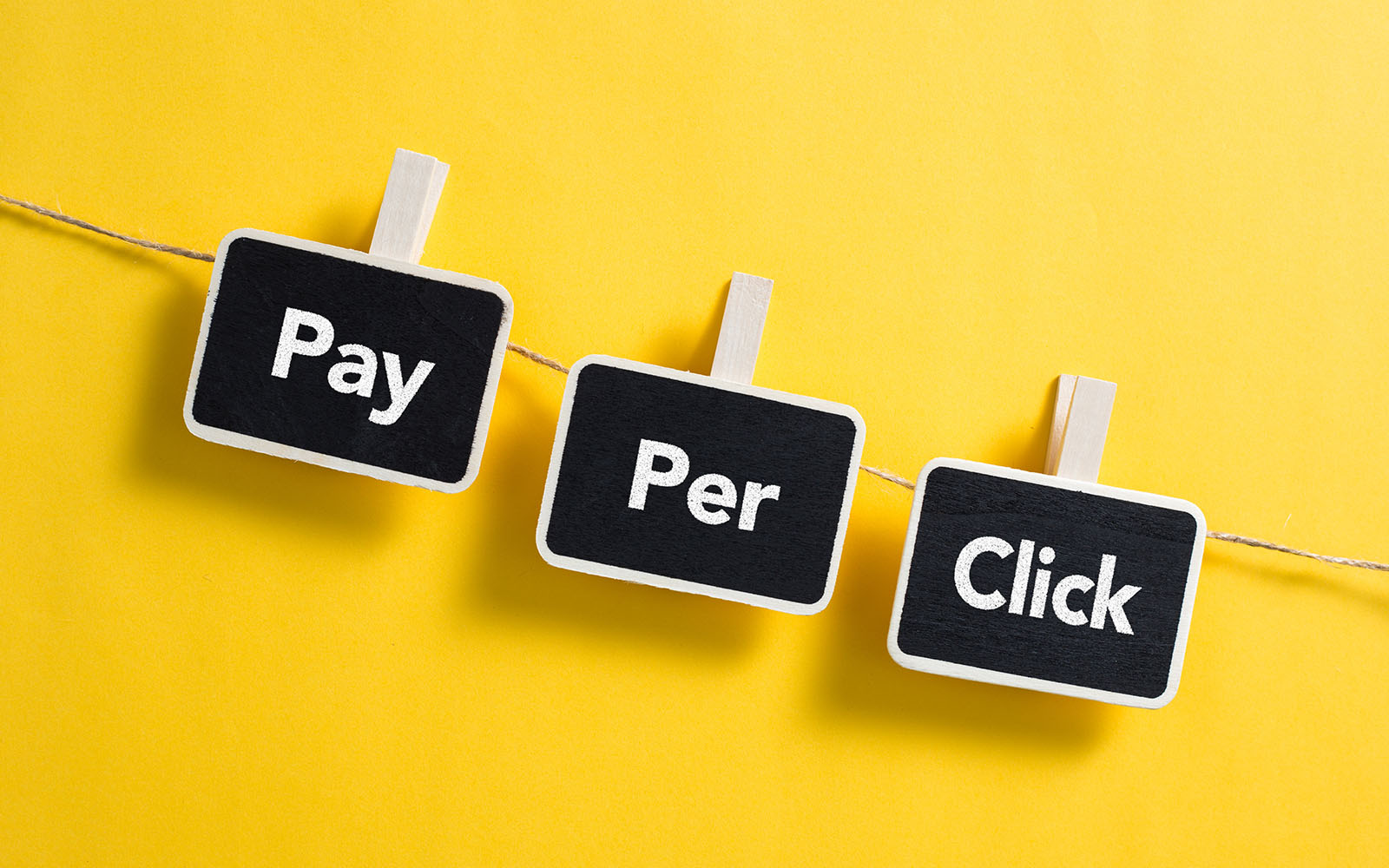
Pay-per-click (PPC) advertising has become one of the most effective ways for businesses to reach their target audience and drive traffic to their website. In this digital age, where consumers are constantly bombarded with information and advertisements, it’s important for companies to stand out from the crowd. PPC provides a unique opportunity to do just that.
The Explanation of PPC
PPC is a digital advertising model where advertisers pay every time someone clicks on one of their ads. The most common platform for PPC advertising is Google Ads, which allows businesses to create targeted ads that show up at the top of search engine results pages when users search for specific keywords related to their products or services. Other popular, paid advertising platforms include Facebook Ads, Instagram Ads, and LinkedIn Ads.
The beauty of PPC lies in its ability to target specific audiences based on a variety of factors such as location, device type, interests, and even time of day. Advertisers can also set daily budgets and bid on keywords in real-time auctions to ensure they’re getting the best return on investment (ROI) possible.
The Importance of PPC in Digital Marketing
In today’s digital landscape, it’s essential for businesses to have a strong online presence if they want to succeed. This means not only having a well-designed website but also leveraging various online marketing channels like social media and email marketing.
However, while these channels are important, none can match the immediacy and targeting capabilities offered by PPC advertising. PPC allows businesses to get in front of potential customers who are actively searching for what they offer – no need for cold calling or interrupting someone’s day with an unsolicited ad. Additionally, because advertisers only pay when someone clicks on an ad – rather than simply displaying it – they can be sure that their money is being spent on engaged, interested users.
The Benefits of PPC
The benefits of PPC are numerous and can vary depending on the specific goals of a business. However, some common advantages include:
- Increased website traffic: by targeting users who are searching for specific keywords related to a business’s products or services, ppc can drive highly targeted traffic to their website.
- Targeted advertising: with advanced targeting options like demographics, interests, and location, businesses can ensure that their ads are reaching the right people at the right time.
- Measurable results and ROI tracking: unlike traditional advertising methods like billboards or tv ads, ppc provides detailed data on ad performance and roi so businesses can adjust their strategy as needed.
- Cost-effective compared to traditional advertising: with ppc’s pay-per-click model and flexible budgeting options, businesses can see significant returns on investment without breaking the bank.
- Quick results and flexibility: Unlike other marketing channels that may take months to see results from, PPC campaigns can be up and running in just a few hours. Additionally, advertisers have full control over when and where their ads show up so they can adjust their strategy based on real-time feedback.
The benefits of PPC are clear – it offers an efficient way for businesses to reach potential customers while having complete control over spending. In the next sections we will cover how PPC works in more detail as well as provide some tips for running successful campaigns.
Benefits of PPC
Increased Website Traffic
One of the primary benefits of using Pay-Per-Click (PPC) advertising is that it can help increase website traffic. When someone clicks on your paid ad, they are directed to a landing page on your website.
This can help drive relevant traffic to your site and increase the chances of conversions. With PPC, you can target specific keywords related to your business and industry, allowing you to reach people who are already interested in what you have to offer.
Targeted Advertising
PPC is known for its ability to target specific audiences based on a range of factors, such as demographics, interests, location, and search behavior. This means that you can ensure that your ads are seen by people who are most likely to be interested in your products or services. By targeting specific keywords and phrases related to what you offer, you can reach people who are searching for those terms online.
Measurable Results and ROI Tracking
One of the key advantages of PPC advertising is that it allows for measurable results and ROI tracking. You can track how many clicks your ads receive, how many conversions result from those clicks, and how much revenue those conversions generate. This allows you to see exactly how much money you’re spending on each click or conversion and determine whether or not the investment is worth it.
Cost-Effective Compared to Traditional Advertising
Compared to traditional forms of advertising like radio or TV ads, PPC is often more cost-effective because it allows for highly targeted campaigns with measurable results. You only pay when someone clicks on your ad rather than paying a lump sum upfront with no guarantee of any returns.
Quick Results and Flexibility
Another benefit of using PPC advertising is that it offers quick results and flexibility. Unlike SEO (Search Engine Optimization), which can take months to see results, PPC allows you to start generating traffic and leads right away. Additionally, you can adjust your campaigns on the fly, changing ad copy or targeting options based on performance data to ensure the best results possible.
Overall, the benefits of using PPC advertising are clear. From increasing website traffic and targeting specific audiences to providing measurable results and flexibility, PPC is a highly effective form of digital marketing that can help businesses of all types and sizes achieve their goals.
How PPC Works
Pay-Per-Click (PPC) advertising is a digital marketing technique that allows businesses to reach their target audience through search engines, social media platforms, and other websites using internet advertising. The basic principle behind it is simple – advertisers bid on specific keywords or phrases that are relevant to their business. When a user types in one of those keywords or phrases into a search engine or clicks on a website with relevant content, an ad from the advertiser appears on the page.
Explanation of the Auction System
In order to participate in PPC advertising, businesses need to create an account with the chosen platform such as Google Ads. They then select relevant keywords and create ads for their target audience using paid search only. When someone searches for those keywords, a live auction takes place between all advertisers who have chosen those specific keywords.
The winner of the auction will have their ad displayed at the top of the The auction system works by taking into account two main factors: bid amount and Quality Score.
Bid amount is how much an advertiser is willing to pay per click for their ad to be shown when someone searches for their chosen keyword. Quality Score is Google’s assessment of how well an advertiser’s keyword aligns with its ads and landing pages as well as its click-through rate (CTR) performance on search queries.
Keyword Research and Selection
One crucial part of PPC advertising success lies in choosing the right keywords that will attract high-quality traffic while maintaining cost-effectiveness. Keyword research involves identifying popular phrases related to your business niche and determining which ones are most likely to result in conversions such as sales or lead generation.
To conduct effective keyword research, businesses can use various tools like Google Keyword Planner which provides suggestions on relevant terms based on volume, competition level, and estimated cost-per-click (CPC). Once keywords have been identified, advertisers can then select those that align with their budget, goals, and target audience.
Ad Creation and Targeting Options
After selecting the keywords, the next step is to create ads that will entice users to click on them. Ads can take various forms such as text ads, image ads, or video ads depending on the platform. The ad copy should be concise and compelling while utilizing keywords for relevance.
Targeting options allow advertisers to tailor their ad campaigns based on who they want to reach. For instance, targeting options include demographics such as age, gender, location-based targeting using geolocation data and interest targeting which allows businesses to hone in on customers who have shown an interest in similar products or services.
Bidding Strategies
Bidding strategies are a crucial part of a PPC campaign since they determine how much an advertiser is spending per click for each keyword or ad group. There are several bidding options available including manual bidding where advertisers set their own bids or automated bidding where platforms use algorithms to adjust bids based on pre-set metrics like CTR or conversion rate. Choosing the right bidding strategy depends on several factors such as business goals and ad budget amount.
Advertisers can use more than one strategy at a time by creating different campaigns with different objectives ranging from raising brand awareness to generating sales conversions. Understanding how PPC works is essential for businesses looking to develop an effective digital marketing strategy.
From conducting keyword research to creating compelling ad copy and utilizing various targeting options – all these elements must work together seamlessly for optimal results. By implementing these strategies effectively and monitoring performance and ad spend regularly, businesses can maximize their ROI with PPC advertising while reaching new customers in a cost-effective manner.
Types of PPC Campaigns
Search Ads
One of the most common ad types used of PPC campaigns is search ads. These are the advertisements that appear at the top and bottom of search engine results pages (SERPs).
Search ads allow businesses to target specific keywords that are relevant to their products or services, helping them reach potential customers who are already searching for what they offer. These ads typically have a headline, description, and URL.
Display Ads
Display ads are another type of PPC campaign that can help businesses increase brand awareness and reach a wider audience. These ads appear on websites, social media platforms, and other digital channels as banner or sidebar advertisements. Display ads can be targeted based on demographics, interests, and behaviors to reach a specific audience.
Social Media Ads
Social media ad platforms, like Facebook, Instagram, Twitter, LinkedIn offer powerful advertising tools for businesses looking to target specific audiences with their social media marketing strategies. Social media advertising allows you to target users based on interests, behaviors or demographics in order to reach your ideal customer.
Importance for Businesses and Marketers
Reach a Wider Audience with Targeted Keywords
One of the primary benefits of PPC advertising is the ability to get your message in front of more people who may not have found you organically otherwise. By targeting specific keywords related to your industry or product offering you can draw in highly qualified leads more quickly than ever before.
Increase Brand Awareness through Ad Impressions
PPC campaigns also help increase brand awareness through ad impressions. Even if someone doesn’t click on your ad when it appears on a SERP or website they visit regularly – seeing it repeatedly will embed your brand image into their memory over time.
Generate Leads and Sales with Effective Ad Copy
The ultimate goal of any PPC campaign is to generate leads and sales for your business, which is why effective ad copy is so important. Effective ad copy entices potential customers to click on your ad and learn more about what you offer. By creating ads that are both attention-grabbing and informative, you can increase the chances of turning clicks into conversions.
Challenges in Running a Successful PPC Campaign
High Competition for Popular Keywords Can Drive Up Costs
One of the biggest challenges in running a successful PPC campaign is dealing with high competition for popular keywords. If multiple businesses are bidding on the same keywords, it can drive up costs and make it difficult to maintain profitability.
Constant Monitoring, Testing, and Optimization Required to Maintain Performance
Another challenge is maintaining performance over time. PPC campaigns require ongoing monitoring, testing, and optimization in order to ensure that your ads continue to perform well over time.
Understanding How to Effectively Use Targeting Options
Understanding how to effectively use targeting options can be a challenge as well. With so many options available for targeting different audience segments across different platforms – getting it right requires experience or professional insights.
Conclusion
Understanding the importance of Pay-Per-Click (PPC) advertising in digital and marketing efforts is essential for businesses looking to reach wider audiences while staying within their budget limits. The benefits of PPC campaigns include increased website traffic, targeted advertising, measurable results and ROI tracking , cost-effectiveness compared with traditional advertising methods – all while receiving quick results through flexible bidding strategies.
However, running a successful campaign requires overcoming challenges such as high competition for popular keywords driving up costs; constant monitoring/testing/optimization needs; effectively using targeting options. Overall though with careful planning and management by professionals – implementing a well-planned PPC strategy can lead to significant benefits for your business.
Frequently Asked Questions
What is PPC and why is it important for businesses?
PPC, or Pay-Per-Click, is a model of internet marketing where advertisers pay a fee each time one of their ads is clicked. Essentially, it’s a way of buying visits to your site with paid ads, rather than attempting to “earn” those visits organically.
The importance of PPC for businesses lies in its ability to drive targeted traffic to a website in a cost-effective and controlled manner. Compared to traditional forms of advertising, PPC presents the unique opportunity to put your brand and product in front of interested users who wouldn’t have found your business otherwise.
- PPC drives targeted traffic to your website.
- It is a cost-effective method of advertising.
- PPC presents your brand to interested users.
How does PPC contribute to business growth?
PPC contributes to business growth in several ways. First, it provides a significant boost to visibility, enhancing brand awareness. Second, it facilitates lead generation and customer acquisition by driving targeted traffic to your site. Lastly, by analyzing PPC campaign data, businesses can gain invaluable insights into customer behavior, preferences, and trends. This information can guide other marketing strategies and business decisions.
- PPC boosts brand visibility.
- It aids in lead generation and customer acquisition.
- PPC campaign data can offer valuable insights into customer behavior.
Why is PPC beneficial for small businesses?
PPC is particularly beneficial for small businesses as it allows them to compete with larger businesses in terms of online advertising visibility. It offers a level playing field because it depends more on the quality of the ad and the relevance of the product or service, rather than the size of the business. Furthermore, PPC can be budget-friendly for small businesses as they only pay when someone actually clicks on their ad.
- PPC allows small businesses to compete with larger businesses online.
- It depends on the quality of the ad and relevance, not the size of the business.
- PPC can be budget-friendly for small businesses.
How does PPC impact SEO strategies?
While PPC and SEO (Search Engine Optimization) are different strategies, they can complement each other in impactful ways. PPC can deliver immediate traffic, while SEO strategies often take more time to show results. Moreover, the keyword and conversion data obtained from PPC campaigns can be utilized to inform and refine SEO strategies. Therefore, a well-balanced digital marketing approach often includes both PPC and SEO.
- PPC can deliver immediate traffic, complementing longer-term SEO strategies.
- Keyword and conversion data from PPC can inform SEO efforts.
- A balanced digital marketing strategy often includes both PPC and SEO.
What are the long-term benefits of PPC?
The long-term benefits of PPC include sustained brand exposure, a steady stream of targeted, organic traffic in, and continuous data for business insights. A well-managed PPC campaign can maintain a strong online presence for your brand. The constant influx of targeted traffic can lead to steady conversions and customer loyalty. Meanwhile, the continuous data from PPC campaigns provide valuable insights, enabling businesses to refine their marketing strategies and product offerings.
- PPC ensures sustained brand exposure and a steady stream of targeted traffic.
- It leads to steady conversions and increased customer loyalty.
- Continuous data from PPC can provide long-term business insights.





